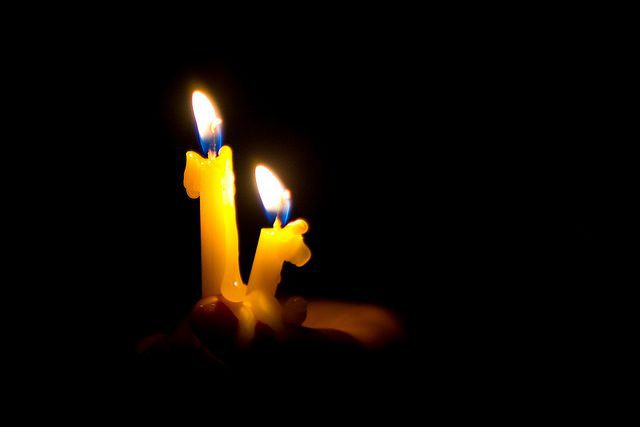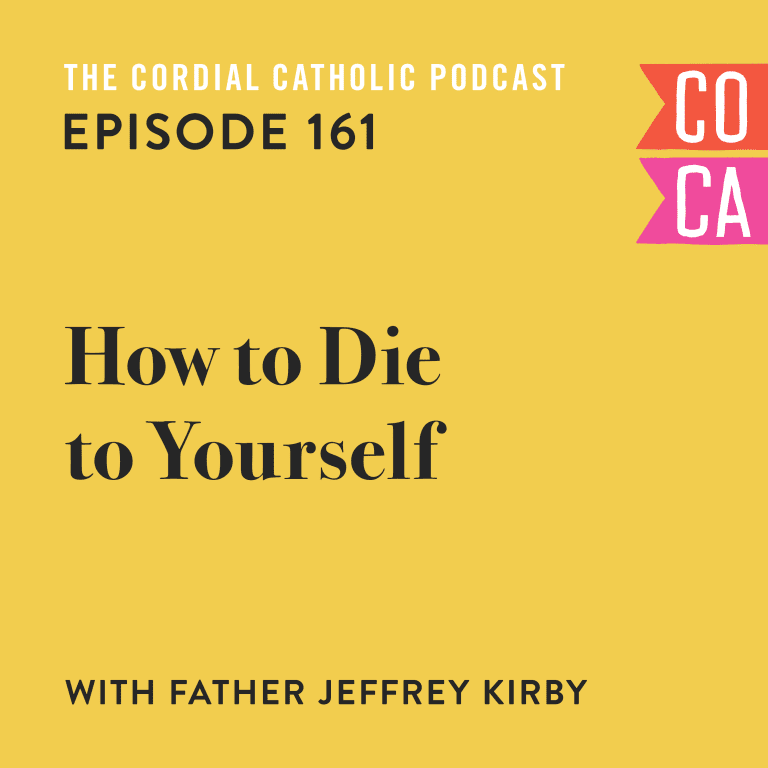
I hate to admit this, but it’s probably true: We are who we are in the dark.
That doesn’t bode well when I’m bouncing a shrieking, fussy newborn in the waning hours of the night. And I’m only up until 11pm, it’s my wife that has the middle-of-the-night shift. (St. Gianna Molla, pray for us!)
But, reticent as we may be to admit it, we know it’s true. Our true, unvarnished, completely non-gussed-up self is the one that’s often really in the driver’s seat. The one that’s doing the work behind the scenes.
You know the one I mean. The angry self that emerges when I’m cut off on the highway, headed into the work. The vindictive self that seeks some smug, self-satisfying joy out of seeing a co-worker fail after “I told you so!” but they went ahead and did it anyway. The petty self that has a hard time letting go of that itty bitty remark someone once made about me.
That me.
That one that frustratedly sighs under his breath at how onerous it is to be blessed with the opportunity of bouncing my beautiful baby girl for another hour long stint.
How hard is my life, right?
One of the most powerful things I’ve ever read was Frank Sheed’s description of God. Rebutting the idea of God as an old man hovering in the clouds, high up in the heavens, or a wizard behind the curtain of Oz Sheed paints God as an ocean instead.
God is an ocean, he says, and we are, all of us, swimmers. Or, if you will, simply out here floating. Adrift in God.
I absolutely love that image, and it’s stuck with me ever since. I think about it often. God is not so abstract, Sheed was trying to say, but rather so close that we’re actually floating in God Himself.
I take this to be a very, very powerful truth—especially in the middle of the night. Because if we are truly so adrift in God and if he is so intimately close to us that I can simply reach out my finger tips and he is everywhere. Like a swimmer to the sea, he totally surrounds.
There’s something particularly freeing in this picture of God, at least to my mind. My prayers, especially those tired and frustrated prayers in the middle of the night, don’t need to be anything more than a whisper. A sigh, even. A breath out because God so closely surrounds me that I’m floating in his grace. Adrift.
And what’s more, God knows exactly who I am in the darkness anyway.
He is so close, so surrounding, that he knows exactly my weaknesses and failings. My unbridled temper, my vindictive streak, my overactive sense of justice. When Jesus, God himself, walked the earth he reminded us that, “even the hairs of your head all have been numbered.” (Luke 12:7a)
God knows us that well.
St. Augustine once wrote that God is closer to us that we are to ourselves. Adrift in the ocean of God we don’t even have to exhale our prayers—he is that close.
In my day job, as an educator, I often tell my students that their character counts. I hope they’re listening. And character, I opine dramatically, is who we are when no one is looking. The same thing applies here, too.
Our tired selves, our weak selves, our angry or vindictive selves are often the selves that are in the driver’s seat. Or, at least, the selves we so often gravitate towards when no one else is looking, when we think it doesn’t matter. But God cannot be hid from; he is that close, he is everywhere and that, I take, as a good thing.
After all, God knows that me and still takes me in. He sees me, hears me, bouncing a baby in the dark, cutting off a driver on the highway, cursing an employee behind their back, and he welcomes me in nonetheless. That is grace, which extends to you and I and everyone else, even in the darkness.
Photo Credit: Pimthida.












